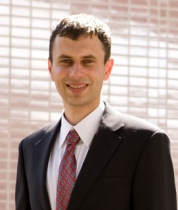Seminar
May 12
Presentation: 1:30 – 3:00pm
SB 112
Reception: 3:00 – 4:00pm
SB 300
Peter Carnevale
Marshall School of Business
University of Southern California
Groups in Bilateral Negotiation
Abstract
Most important negotiations involve groups of people rather than individuals facing each other across the negotiation table. However, most of the management literature considers bilateral negotiation as between individuals rather than groups. In this presentation, I describe a program of research that addresses this gap and investigates negotiation groups. The effects uncovered so far include the following: people sometimes use the outgroup negotiation as a vehicle to gain status within the group, and this can make it harder for the groups to reach agreement; stable group leadership can increase the likelihood of between-group agreements; groups can be good in helping negotiators maintain their aspirations; but groups can encourage people to be unfair. The bottom line is that what happens on one side of the negotiation table, inside the group, can be an important determinant of what happens across the table in between-group negotiation.
About the Speaker

Peter Carnevale is an expert on negotiation, mediation, group problem solving, and creativity, whose work is published in leading psychology and management journals including Journal of Personality and Social Psychology, Organizational Behavior and Human Decision Processes, Psychological Science, Journal of Experimental Social Psychology, Journal of Applied Psychology, Negotiation Journal, among others; he has served on numerous journal editorial boards. His most recent book (with Carsten de Dreu), Methods of Negotiation Research, was winner of the 2008 International Association for Conflict Management (IACM) Award for Most Outstanding Book Published in the years 2006 and 2007. He was elected a Division Chair of the Conflict Management Division of the Academy of Management, as well as President of IACM. His current research is funded by the National Science Foundation.

![Avant[1]](https://www.cor.web.uci.edu/files/2013/02/Avant1.jpg)
![200px-Virginia.haufler[1]](https://www.cor.web.uci.edu/files/2013/02/200px-Virginia.haufler1.jpg)